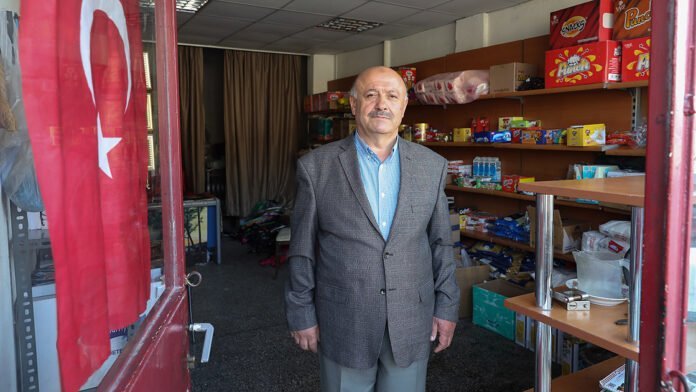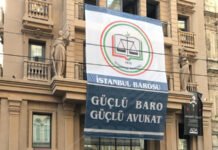A Turkish man known for helping refugees through a charity shop in Ankara has been arrested on charges of sexually assaulting several Syrian women on the pretext of offering aid, Turkish Minute reported, citing the BBC Turkish service.
Saadettin Karagöz, widely referred to as the “grandfather of refugees” for his work at the Umut Hayır Mağazası (Hope Charity Shop) in Ankara’s Altındağ district, was detained and subsequently arrested pending trial this week after several women accused him of sexual assault and harassment.
The Ankara Chief Public Prosecutor’s Office is conducting the investigation into Karagöz.
The allegations concerning Karagöz were included in an exclusive report published on Monday by the BBC Turkish service based on its one-year-long investigation.
Three Syrian women who spoke to the outlet said Karagöz had harassed or assaulted them, while seven others, including two former employees of the charity shop, said they had witnessed or heard accounts of abuse that allegedly took place between 2016 and 2024.
One of the women, called “Medina” by the BBC, said she fled Aleppo in 2016 and later sought help from Karagöz after her husband left her alone to care for their three children. She said he initially promised her assistance and told her, “My door is always open to you.” But during a later visit, he took her behind a curtain in his charity shop, grabbed her and tried to kiss her.
Medina said she screamed and escaped, adding that Karagöz later came to her home, banged on her door and threatened to have her deported if she told anyone what had happened. She said she was too afraid of what might happen to her to go to the police and never told anyone about the incident.
Another woman, whom the BBC called “Nada,” told the outlet that she met Karagöz while desperately trying to provide for her family in Ankara. At first, she said, he “seemed like an angel sent from heaven,” but his behavior quickly changed. During one visit, she said Karagöz took her behind a curtain on the pretext of giving her baby supplies and touched her inappropriately, telling her, “Don’t be afraid, this is normal.”
When she returned to the shop another day, she said he assaulted her again by grabbing her from behind and forcing her to touch him. “He was like a monster attacking me,” she recalled, saying she ran out in tears and warned other women waiting outside not to go in. Nada said she never told anyone, not even her husband, fearing she would be blamed or stigmatized.
A third woman, Batoul, who has since relocated to Germany, said she went to Karagöz’s shop as a single mother of three seeking assistance. She said that as she turned to collect her aid package, Karagöz placed his hands on her hips. “I was furious and pushed him away,” she told BBC, adding that she left immediately and decided to speak publicly to help other women who might face similar abuse.
Karagöz denied all the allegations, saying that if the accusations were true, “more women would have come forward.” He insisted that he had helped more than 37,000 people, mostly refugees, over the past decade and would “not be destroyed by what a few people say.”
He also argued that he couldn’t engage in any sexual activity due to a medical condition, sharing a health report to support his claim. However, medical experts interviewed by the BBC disputed his argument, saying such a condition would not prevent sexual activity.
Karagöz also claimed that the women had fabricated the allegations in retaliation for his reporting people involved in criminal activities to the police. However, the BBC said it found no evidence supporting this claim, while the women interviewed said they feared retaliation or deportation if they went to the police.
Police records show Karagöz was previously investigated twice over similar allegations, in 2019 and earlier this year, but was not prosecuted due to a lack of evidence.
The United Nations Refugee Agency (UNHCR) also conducted confidential interviews with women in 2022 after learning of the claims. Both police and UN sources told the BBC that the allegations were taken seriously but that victims were reluctant to file complaints out of fear of retaliation or deportation.
Karagöz renamed his charity shop Bir Evim Aşevi Derneği (My Home Food Bank Association) in March and applied to have it registered as an official charity.
Turkey hosts the world’s largest Syrian refugee population, once estimated at 3.5 million, but has declined over the years. According to official figures, more than 1.24 million Syrians have returned home voluntarily since 2016.
The number of returns increased since the removal of the Bashar al-Assad regime in December 2024.
Last month, Interior Minister Ali Yerlikaya announced that more than 500,000 Syrians who fled to Turkey during the rule of al-Assad have returned home since he was overthrown.















